We know school is a substantial commitment. At WCU, we want to equip you with all the information you need to make the right decision for your future.
Our goal is to give you a clear understanding of Bachelor of Science in Dental Hygiene BSDH tuition costs so you can be well-informed as you navigate the application and enrollment process. To assist you in your decision, we provide a breakdown below of the BSDH program costs in Bachelor of Science in Dental Hygiene at West Coast University.
We offer several financial aid options – including scholarships, grants, and loan access – to help support you through your studies.
1 Effective April 1, 2024, the Student Tuition Recovery Fund (STRF) assessment rate will be zero dollars and zero cents ($0.00) per one thousand dollars ($1,000) of institutional charges.
The State of California established the Student Tuition Recovery Fund (STRF) to relieve or mitigate economic loss suffered by a student in an educational program at a qualifying institution, who is or was a California resident while enrolled, or was enrolled in a residency program, if the student enrolled in the institution, prepaid tuition, and suffered an economic loss. Unless relieved of the obligation to do so, you must pay the state-imposed assessment for the STRF, or it must be paid on your behalf, if you are a student in an educational program, who is a California resident, or are enrolled in a residency program, and prepay all or part of your tuition.
You are not eligible for protection from the STRF and you are not required to pay the STRF assessment, if you are not a California resident, or are not enrolled in a residency program.
It is important that you keep copies of your enrollment agreement, financial aid documents, receipts, or any other information that documents the amount paid to the school. Questions regarding the STRF may be directed to the Bureau for Private Postsecondary Education, 1747 N. Market Blvd. Ste 225 Sacramento, CA 95834, (916) 431-6959 or (888) 370-7589.
To be eligible for STRF, you must be a California resident or enrolled in a residency program, prepaid tuition, paid or deemed to have paid the STRF assessment, and suffered an economic loss as a result of any of the following:
-
The institution, a location of the institution, or an educational program offered by the institution was closed or discontinued, and you did not choose to participate in a teach-out plan approved by the Bureau or did not complete a chosen teach-out plan approved by the Bureau.
-
You were enrolled at an institution or a location of the institution within the 120-day period before the closure of the institution or location of the institution or were enrolled in an educational program within the 120-day period before the program was discontinued.
-
You were enrolled at an institution or a location of the institution more than 120 days before the closure of the institution or location of the institution, in an educational program offered by the institution as to which the Bureau determined there was a significant decline in the quality or value of the program more than 120 days before closure.
-
The institution has been ordered to pay a refund by the Bureau but has failed to do so.
-
The institution has failed to pay or reimburse loan proceeds under a federal student loan program as required by law or has failed to pay or reimburse proceeds received by the institution in excess of tuition and other costs.
-
You have been awarded restitution, a refund, or other monetary award by an arbitrator or court, based on a violation of this chapter by an institution or representative of an institution, but have been unable to collect the award from the institution.
-
You sought legal counsel that resulted in the cancellation of one or more of your student loans and have an invoice for services rendered and evidence of the cancellation of the student loan or loans.
To qualify for STRF reimbursement, the application must be received within four (4) years from the date of the action or event that made the student eligible for recovery from STRF.
A student whose loan is revived by a loan holder or debt collector after a period of noncollection may, at any time, file a written application for recovery from STRF for the debt that would have otherwise been eligible for recovery. If it has been more than four (4) years since the action or event that made the student eligible, the student must have filed a written application for recovery within the original four (4) year period, unless the period has been extended by another act of law.
However, no claim can be paid to any student without a social security number or a taxpayer identification number.
2
The Estimate for Book, Uniform, and Supply fees reflect the Manufacturer's Suggested Retail Price totals compiled in January 2022 and are subject to change. Supplies become student purchases once issued to student. Students who drop or have been dismissed after supplies have been issued will assume ownership for these items and will not be eligible for refunds. For details on all of the supplies, contact the Bursar Office.
Dental Hygiene supplies are issued in DHYG 302 - Introduction to Dental Hygiene Practice with Lab. The General Education Resource Fee will be waived for Active Duty, Active Duty Spouse, Reserve, Reserve Spouse, Veterans, Veteran Spouse, Department of Defense employees, dependents utilizing parent's veteran's education benefits, and Veterans Affairs employees.
3
Technology Fee includes student technical support, Office 365, blended and online course delivery/learning management system, mobile app, student portal technology and access, and required electronic course materials/software.
4The purpose of the Cost of Attendance (COA) is to provide students and families with an estimated cost to attend West Coast University. The COA includes both direct and indirect cost estimates. Direct costs are paid directly to West Coast University and are shown separately for each program. Indirect costs are not paid to West Coast University and are estimates students may use to budget expenses they may incur while attending school. While actual indirect costs may vary, West Coast University estimates these amounts based on the number of months in an academic year and whether students will live with parents or off campus.
Note 1: Students who wish to take Challenge Exams will be subject to a fee of $100 for each Challenge exam. Please see the campus Bursar Office for a full price listing.
Note 2: Course Audits - If a course(s) is being audited. Credits for these courses will be included for the student's schedule status for billing, based on the schedule statuses and amounts shown above. Students in the Dental Hygiene program should refer to the Grading Requirements and Reentry Following Dismissal Policy for their program for course audits.
Note 3: The Total Tuition Cost can be converted to Cost per Credit Hour by using the following calculation:
Total Tuition Cost ($127,106) divided by the Total Program Credits (124) = Cost per Credit Hour ($1025).


